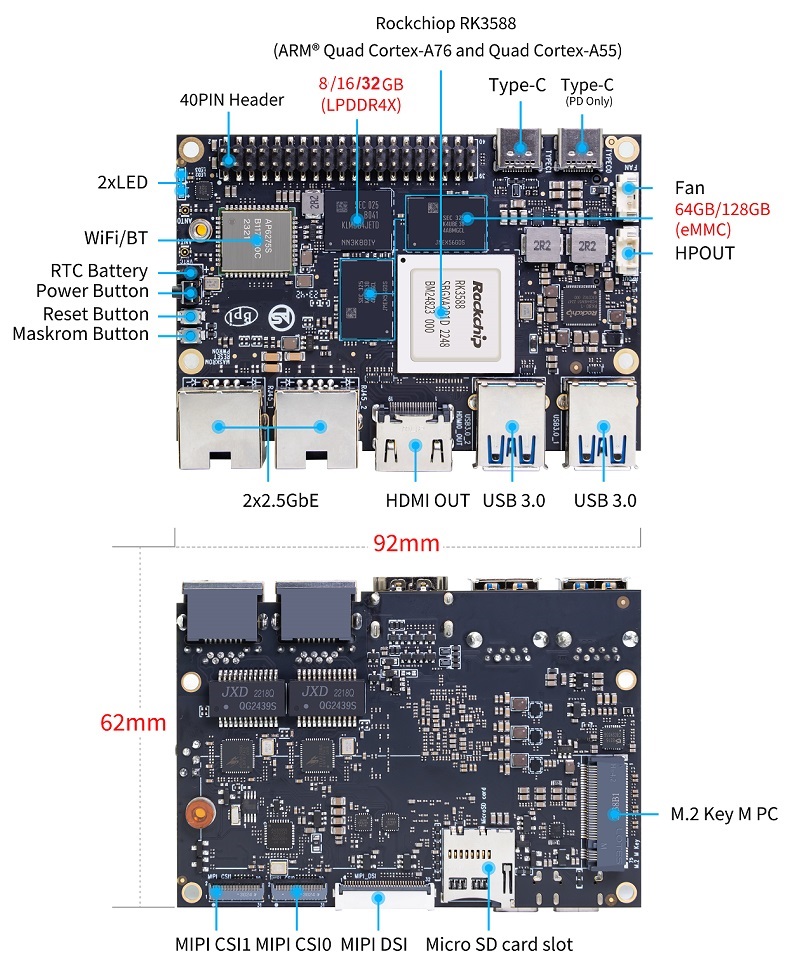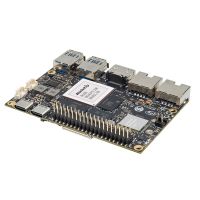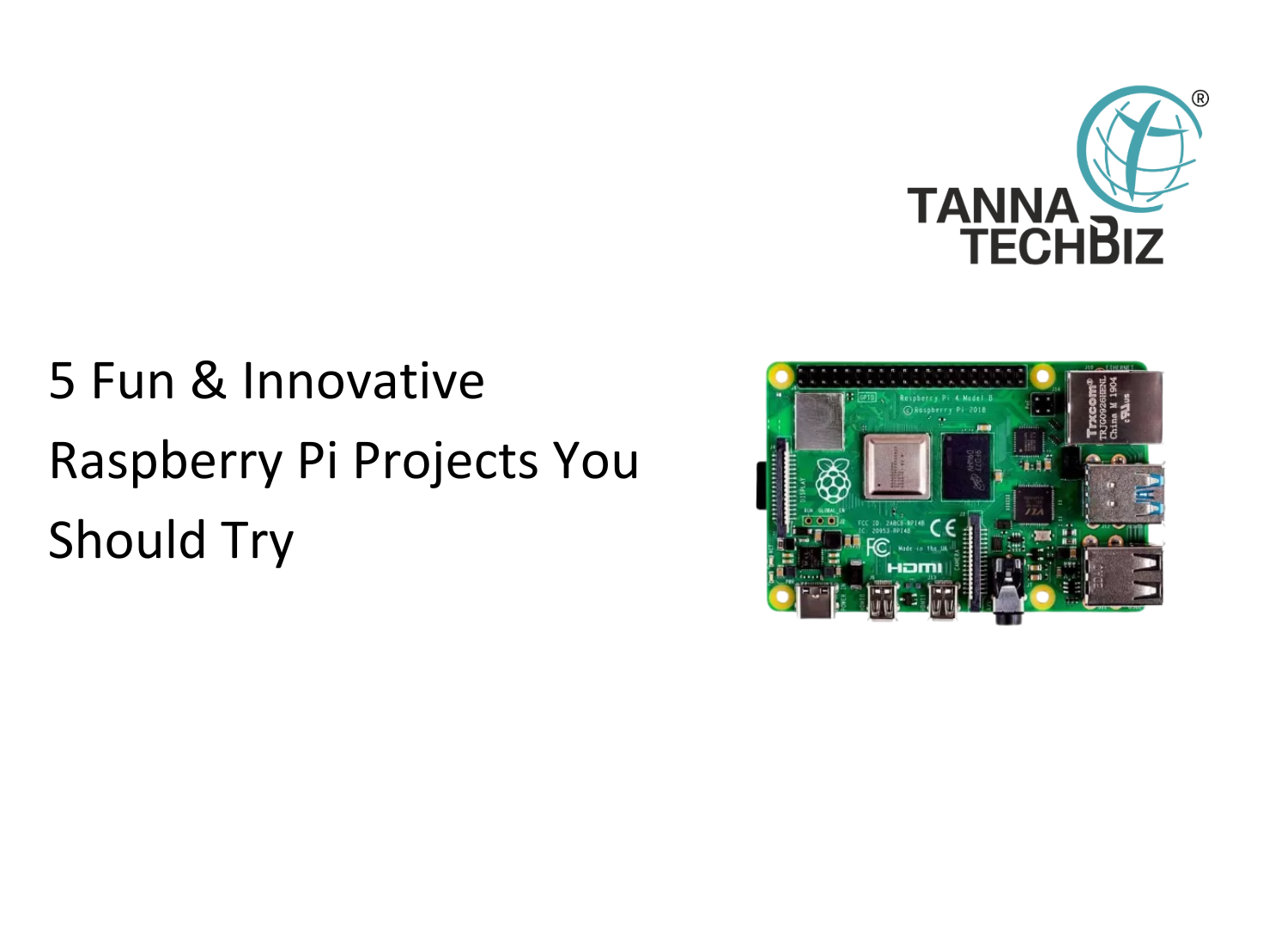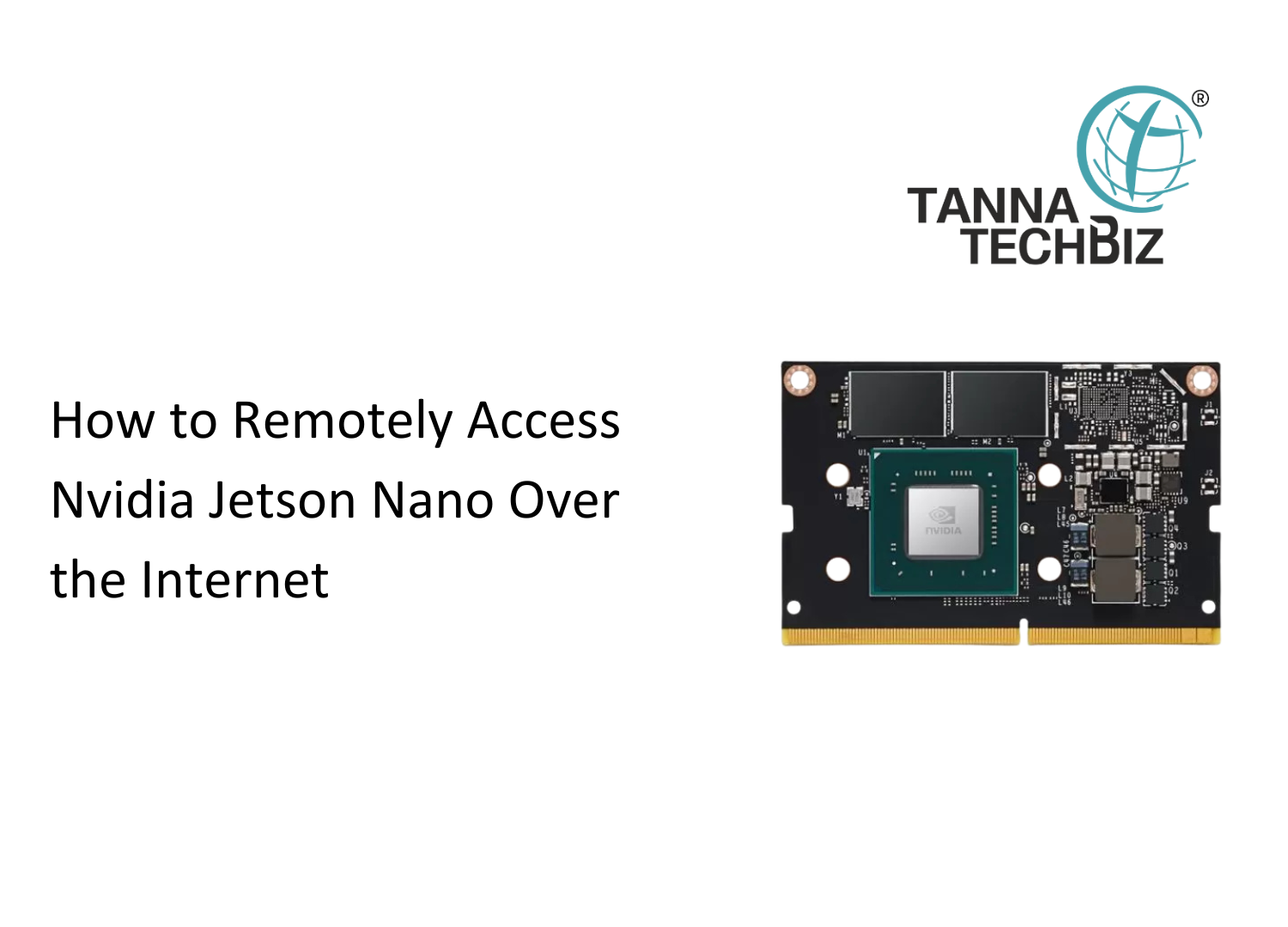Comprehensive Guide to Banana Pi M7: Versatile Computing Power with Multiple Configurations
July 22, 2024 864

Comprehensive Guide to Banana Pi M7: Versatile Computing Power with Multiple Configurations
The Banana Pi M7, a powerful single-board computer (SBC) featuring Rockchip's latest flagship RK3588, offers a range of configurations to meet diverse computing needs. Whether you are a hobbyist, developer, or tech enthusiast, the Banana Pi M7 is designed to provide robust performance, extensive connectivity, and support for a wide array of applications. This comprehensive guide will delve into the specifications, use cases, and comparisons of the three available configurations: 8GB RAM + 64G eMMC, 16GB RAM + 128G eMMC, and 32GB RAM + 128G eMMC.
What is Banana Pi M7?
The Banana Pi M7 is an advanced SBC powered by the Rockchip RK3588 octa-core 64-bit processor, combining quad-core Cortex-A76 and quad-core Cortex-A55 with a max frequency of 2.4GHz. It features a 6 TOPS NPU for AI applications, up to 32GB of RAM, and multiple storage options including 64GB and 128GB eMMC. The board supports 8K video encoding/decoding, Wi-Fi 6, dual 2.5G Ethernet ports, and an array of interfaces for diverse connectivity needs.
Configuration Comparison
1. Banana Pi M7 (8GB RAM + 64G eMMC)
- RAM: 8GB LPDDR4x
- Storage: 64G eMMC
- Use Cases: Ideal for moderate computing tasks, home automation projects, and educational purposes.
- Performance: Provides sufficient power for most applications but may struggle with intensive multitasking or heavy AI workloads.
1. Banana Pi M7 (8GB RAM + 64G eMMC)
- RAM: 16GB LPDDR4x
- Storage: 128G eMMC
- Use Cases: Suitable for more demanding applications, such as IoT projects, edge computing, and basic AI developments.
- Performance: Enhanced performance over the 8GB model, capable of handling more complex tasks with better efficiency.
3. Banana Pi M7 (32GB RAM + 128G eMMC)
- RAM: 32GB LPDDR4x
- Storage: 128G eMMC
- Use Cases: Perfect for high-performance computing, AI applications, cloud computing, and virtual/augmented reality projects.
- Performance: The most powerful configuration, capable of running multiple high-demand applications simultaneously with ease.
Hardware Interface:


Hardware Specifications
| HardWare Specification of Banana Pi BPI-M7 | |
|---|---|
SOC | RockChip RK3588 |
CPU | RK3588 Quad-Core Cortex-A76@ 2.4GHz + Quad-Core Cortex-A55@ 1.8GHz, 8nm process |
GPU | Mali-G610 MP4 (4x256KB L2 Cache), Supports OpenGL ES3.2/OpenCL2.2/Vulkan1.1 |
NPU | 6 TOPS@INT8 (3 NPU cores) |
Supports INT4/INT8/INT16 mixed computing | |
Supports frameworks like TensorFlow, MXNet, PyTorch, Caffe, Tflite, Onnx NN, Android NN, etc | |
VPU/Codec | Hardware Decode: 8K@60fps H.265/VP9/AVS2, 8K@30fps H.264 AVC/MVC, 4K@60fps AV1, 1080P@60fps MPEG-2/-1/VC-1/VP8 |
Hardware Encode: 8K@30fps H.265 / H.264 | |
ISP | Integrated 48MP ISP with HDR & 3DNR |
RAM | 8GB/16GB/32GB (max 32GB) 64-bit LPDDR4/LPDDR4x, default 8GB LPDDR4x |
Flash | 32GB/64GB/128GB eMMC, default 64GB eMMC, Supports MicroSD card expansion |
PCIe | 1x M.2 Key M (PCIe 3.0 4-lanes). Expandable SSD support for 2280/2260/2242/2230 M.2 SSD cards, default 2280 |
Networking | 2x 2.5G Ethernet |
Onboard IEEE 802.11a/b/g/n/ac/ax WIFI6 and BT5 (AP6275P) | |
Video Out | 1x HDMI 2.1, supports 8K@60fps |
1x MIPI DSI up to 4K@60fps | |
1x DP 1.4 up to 8K@30fps | |
Video In | 2x 2-lane MIPI CSI, up to 2.5Gbps per lane |
Audio | 1x HDMI audio out |
1x HP audio out | |
1x Type-C 3.1 (DP1.4) audio out | |
USB | 1x USB 3.0 (USB 3.1 Gen 1), equivalent to USB 3.2 Gen 1/USB 3.0, up to 5Gbps |
1x USB Type-C 3.1 (DP1.4/OTG) | |
1x USB 2.0 High (480Mbps)/Full (12Mbps)/Low-Speed (1.5Mbps) modes | |
40-pin | Fully compatible with Raspberry Pi 40-pin header for connecting abundant add-on modules |
Supports UART/SPI/I2C/I2S/PWM/ADC/5V Power/3.3V Power | |
Other | 1x 5V fan interface |
1x battery connector for low power RTC chip HYM8563TS | |
2x LEDs - blue LED blinks on system start, red LED user controllable | |
Power Input | USB Type-C PD 2.0, 9V/2A, 12V/2A, 15V/2A |
Buttons | 1x PWRON button for sleep/wake, 1x Reset button for reboot, 1x Maskrom button for maskrom burn-in mode |
OS Support | Official: Android 12.0, Debian 11, Buildroot |
3rd Party: Armbian, Ubuntu 20.04, Ubuntu 22.04, Kylin OS | |
Dimensions | 92 mm x 62 mm |
Operating temperature | 0℃ ~ 80℃ |
Use Cases and Applications
The Banana Pi M7's versatile configurations make it suitable for a wide range of applications:
- ARM PCs: Use the Banana Pi M7 as a compact, low-power ARM-based PC for daily tasks.
- Edge Computing: Deploy the M7 for processing data at the edge of networks, reducing latency and bandwidth use.
- Cloud Servers: Utilize the M7's robust processing power for cloud-based applications and services.
- AI Development: Leverage the 6 TOPS NPU and compatibility with AI frameworks for machine learning projects.
- Virtual/Augmented Reality: Develop VR/AR applications with the M7's high-performance graphics and processing capabilities.
- Blockchain: Run blockchain nodes and applications efficiently with the M7's strong computational power.
- Smart NVRs: Implement smart network video recorders with the M7's extensive connectivity and video support.
Performance Analysis
The performance of the Banana Pi M7 varies based on its configuration. Benchmarking tests show that the 32GB RAM model significantly outperforms the 8GB and 16GB models in multitasking and AI workloads. The 16GB model provides a balanced option for users needing more power than the 8GB model but not requiring the full capabilities of the 32GB model. The 8GB model, while the most affordable, offers enough performance for standard SBC applications and light development work.
Software and Compatibility
The Banana Pi M7 supports multiple operating systems, including:
- Official: Android 12.0, Debian 11, Buildroot
- 3rd Party: Armbian, Ubuntu 20.04, Ubuntu 22.04, Kylin OS
This wide range of OS support makes the M7 a versatile choice for various development environments and applications. Additionally, the M7 is compatible with popular programming languages and development tools, enhancing its appeal to developers.
Building Projects with Banana Pi M7
Beginner Project: Home Automation System
- Requirements: Banana Pi M7 (8GB RAM), sensors, actuators, and home automation software.
- Steps:
- Install a compatible OS (e.g., Ubuntu 20.04).
- Set up home automation software (e.g., Home Assistant).
- Connect sensors and actuators via GPIO.
- Configure the system to control lights, temperature, and security.
Intermediate Project: Edge Computing Device
- Requirements: Banana Pi M7 (16GB RAM), external storage, and edge computing software.
- Steps:
- Install Debian 11 or Ubuntu 22.04.
- Set up edge computing software (e.g., EdgeX Foundry).
- Configure network settings and connect devices.
- Deploy edge applications for data processing.
Advanced Project: AI-Powered Surveillance System
- Requirements:Banana Pi M7 (32GB RAM), cameras, and AI software.
- Steps:
- Install a compatible OS (e.g., Buildroot).
- Set up AI frameworks (e.g., TensorFlow, PyTorch).
- Connect cameras via MIPI CSI.
- Develop and deploy AI models for object detection and recognition.
Comparing Banana Pi M7 with Other SBCs
The Banana Pi M7 stands out among SBCs due to its high performance, extensive connectivity, and versatile configurations. Compared to the Raspberry Pi 4, the M7 offers more powerful processing capabilities and better support for AI applications. The NVIDIA Jetson series, while also strong in AI, tends to be more expensive. The M7 provides a more affordable option with competitive performance.
Customer Reviews and Testimonials
Users of the Banana Pi M7 have praised its robust performance, versatile connectivity options, and ease of use. Many have successfully deployed it in IoT projects, AI applications, and as a compact desktop replacement. The high RAM configurations are particularly appreciated for their ability to handle complex tasks and multitasking efficiently.
Where to Buy and Pricing Information
The Banana Pi M7 is available for purchase at Tannatech Biz:
Prices vary based on the configuration, with higher RAM models costing more due to their enhanced capabilities.
Conclusion
The Banana Pi M7 is a versatile and powerful SBC suitable for a wide range of applications, from basic home automation to advanced AI development. Its multiple configurations allow users to choose the right model for their specific needs, ensuring they get the best performance and value for their projects. Whether you are a hobbyist or a professional developer, the Banana Pi M7 offers a robust solution for your computing needs.
FAQs
- What operating systems are compatible with the Banana Pi M7?
- The Banana Pi M7 supports Android 12.0, Debian 11, Buildroot, and third-party OSes like Armbian, Ubuntu 20.04, Ubuntu 22.04, and Kylin OS.
- Can I expand the storage on the Banana Pi M7?
- Yes, the M7 supports MicroSD card expansion and has an M.2 Key M interface for SSDs.
- What are the main applications of the Banana Pi M7?
- The M7 is used in ARM PCs, edge computing, cloud servers, AI, virtual/augmented reality, blockchain, and smart NVRs.
- How does the Banana Pi M7 compare to the Raspberry Pi 4?
- The M7 offers more powerful processing, better AI support, and more versatile connectivity options compared to the Raspberry Pi 4.
- Where can I buy the Banana Pi M7?
- The Banana Pi M7 is available for purchase at Tannatech Biz.




